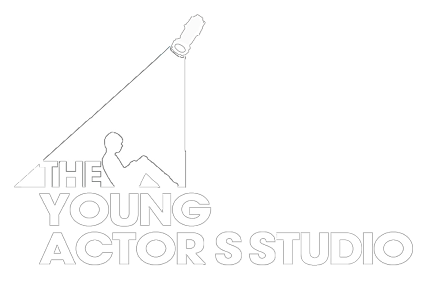- Feel free to contact us with any questions!
- 818-210-3821
- office@youngactorsstudio.com

College Audition Monologues
Fall Season can be a stressful time for our teen actors who are getting ready for their college audition monologues. But it doesn’t have to be! Take some time to prepare in advance, and you can be ready for your college auditions. Here are some tips for finding and preparing the right college audition monologues.
What do colleges ask for?
Colleges vary on their audition requirements- so read carefully their specific instructions! That said, most colleges ask for two contrasting monologues ranging in length from 1-2 minutes. Contrasting usually means one contemporary monologue, and one classical (before 1900) monologue. Additionally, some colleges will prefer that one of the monologues be dramatic, and other comedic. In addition, your monologue should be from a published work.
Where to find monologues?
First off, do not only use the web to find college audition monologues. While there are fantastic web resources to guide your search, it is important to purchase the actual play your college audition monologues are in. There are lots of books featuring a collection of monologues. Make sure to choose a book that features monologues from plays, as opposed to a book featuring original monologues. The reason being that colleges generally prefer your monologues come from well-regarded plays. Here are a couple really good monologue collections:
Play the Scene: The Ultimate Collection of Contemporary Monologues
Young Women’s Monologues from Contemporary Plays: Professional Auditions for Aspiring Actresses
The Actor’s Book of Contemporary Stage Monologues: More than 150 Monologues from 70 Stage Plays
Note that the links are for Amazon. That said, there is a really good chance you can find these collections at your local library, or if you live in LA or New York- Samuel French Bookstore.
What to Look for in College Audition Monologues?
Make sure that you connect to the monologue. The piece you choose should be on that you feel truly passionate about, and are excited to share with others. Also, look for the dramatic action of the monologue. Ask yourself- “Why is the character saying this?” The answer should be something more than just “they’re telling a story” or “they want so and so to understand”. There should be a clear, specific, dramatic reason why they are saying IN THIS PARTICULAR MOMENT. Additionally, the monologue should have some kind of a “build”. A build means that the piece has different emotional levels- rarely is a monologue engaging that only stays on one emotional level the entire time.

It may not always be clear right away what the dramatic action, or the “build” of a monologue is. Sometimes it’s helpful to ask more basic questions: Where does this monologue take place? Who am I talking to? What may have happened before this monologue began? What is at stake in this moment? These questions can lend you to the dramatic action, and the subsequent build. Also this is very important, once you find the monologue that moves you, make sure you buy the play and read the play. As an actor understanding the material is very helpful.
Are there certain monologues that are overdone?
There’s a lot of debate on this point. One line of thinking is that you should try and find something that isn’t done a lot (there are a lot of lists on Google search for “overdone monologues”). That said, the first priority should always be choosing a piece you are passionate about. It you feel you MUST do the Juliet monologue, then go for it. Just be aware of why you want to do this one so badly? What is it about yourself and the character that moves you? When you find your unique take on it, it can be the very thing that gets you in! But make sure you’ve done a lot of research on monologues beforehand. Oftentimes people gravitate to overdone monologues because they haven’t taken the time to really research what’s out there.
Be confident in yourself. You truly do have something to say and this is your way to say it. We’ve helped students get into the college of their dreams. Please see below if you’d like coaching. In the meantime, we are wishing you every success!
